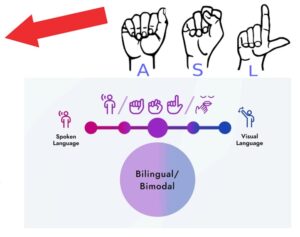Related Products
For Professionals
- Amplification
- Assessment of Student Skills, Challenges, Needs
- Early Childhood: Infants, Toddlers, Preschool
- Hearing Loss – Identification, Impact and Next Steps
- IDEA Law Summary Information
- Language and Speech Development Issues
- Legal Issues in Serving Children with Hearing Loss
- Listening (Auditory Skills) Development
- Planning to Meet Student Needs
- Self-Advocacy Skills for Students with Hearing Loss
- Self-Concept: How the Child with Hearing Loss Sees Himself
- Social Skills
- Speech Perception & Learning
Related Teacher Tools Takeout Items
Understanding Theory of Mind in Deaf and Hard of Hearing Individuals: Insights from Dr. Carol Westby and Dr. Tiffany Hutchins

Theory of Mind (ToM) is a fundamental cognitive ability that enables individuals to understand and attribute mental states—such as beliefs, desires, intentions, and emotions—to themselves and others, and to recognize that others may have different perspectives from their own. However, the development of ToM can be influenced by various factors, including sensory experiences. In the context of deaf and hard of hearing individuals, exploring how their sensory experiences shape their understanding of ToM becomes crucial.
The Influence of Deafness on Theory of Mind Development:
Deafness or hearing impairment presents unique challenges to the development of ToM. For individuals who are deaf or hard of hearing, the lack of auditory input can impact their ability to access social cues and linguistic information, which are crucial for ToM development. As Carol Westby, a prominent figure in the field of language and communication disorders, highlights, “Children who are deaf or hard of hearing may have difficulty understanding and interpreting the subtle nuances of language and social interactions that are essential for ToM development.”
The delay or absence of language acquisition, particularly in cases where early intervention is lacking, can further hinder the development of ToM in deaf and hard of hearing individuals. Tiffany Hutchins, a researcher specializing in developmental psychology and autism spectrum disorders, emphasizes this point, stating, “Language delays in deaf and hard of hearing children can impede their ability to engage in sophisticated mentalizing tasks, as language serves as a vehicle for understanding and expressing complex thoughts and emotions.”
Challenges and Strategies in ToM Development:
Despite these challenges, research indicates that deaf and hard of hearing individuals demonstrate ToM abilities comparable to their hearing peers when provided with appropriate support and interventions. Westby notes, “Through visual and tactile modalities, deaf and hard of hearing individuals can compensate for their lack of auditory input and develop alternative pathways for understanding others’ mental states.”

Strategies such as:
- visual communication systems,
- sign language, and
- explicit instruction
Concepts have been shown to facilitate ToM development in deaf and hard of hearing individuals. Hutchins underscores the importance of early intervention and targeted interventions tailored to the unique needs of this population, stating, “Early exposure to visual communication modalities and explicit instruction in ToM can mitigate the impact of deafness on ToM development and promote socio-emotional competence.”
Fostering a supportive and inclusive environment that values diversity in communication styles is essential for enhancing ToM skills in deaf and hard of hearing individuals. As Westby emphasizes, “Creating opportunities for meaningful social interactions and promoting positive peer relationships can foster the development of ToM in deaf and hard of hearing individuals, enabling them to navigate the complexities of social interactions more effectively.”
The development of Theory of Mind in deaf and hard of hearing individuals is influenced by a myriad of factors including:
- sensory experiences,
- language abilities, and
- social environment.
By understanding the unique challenges faced by this population and implementing targeted interventions and support strategies, we can enhance ToM development and promote socio-emotional well-being in deaf and hard of hearing individuals. As Carol Westby and Tiffany Hutchins’ insights illustrate, empowering deaf and hard of hearing individuals to navigate the social world with confidence and competence is essential for fostering inclusive communities where all individuals can thrive.
Maine Educational Center For The Deaf /GBSD-Youtube video
